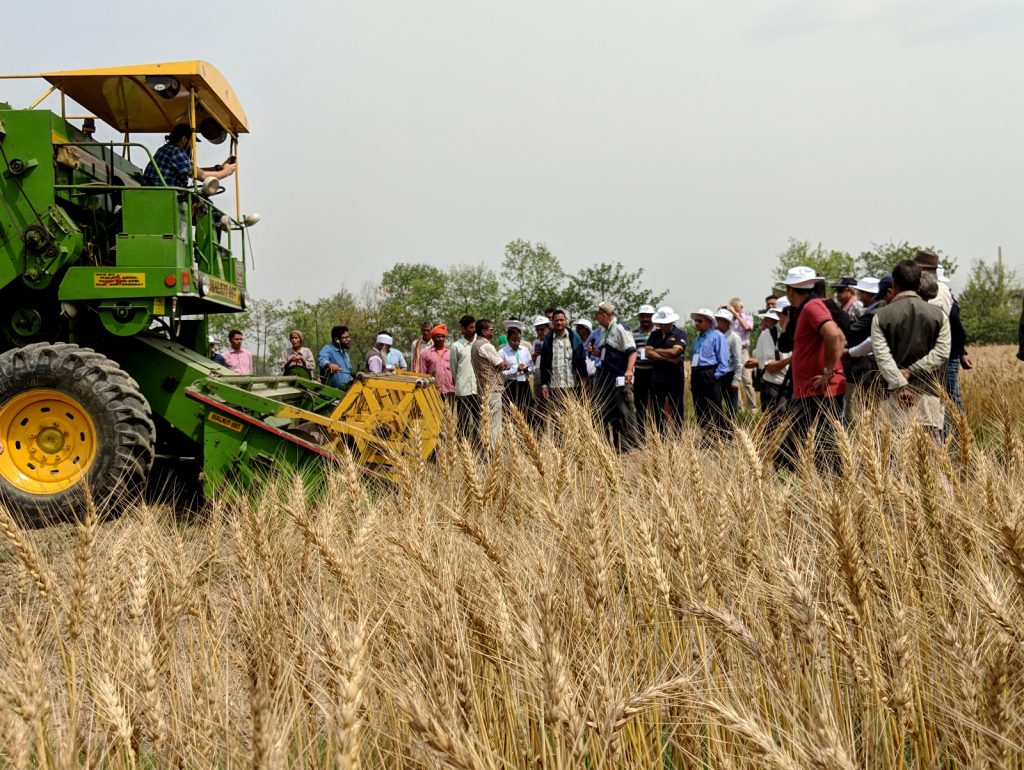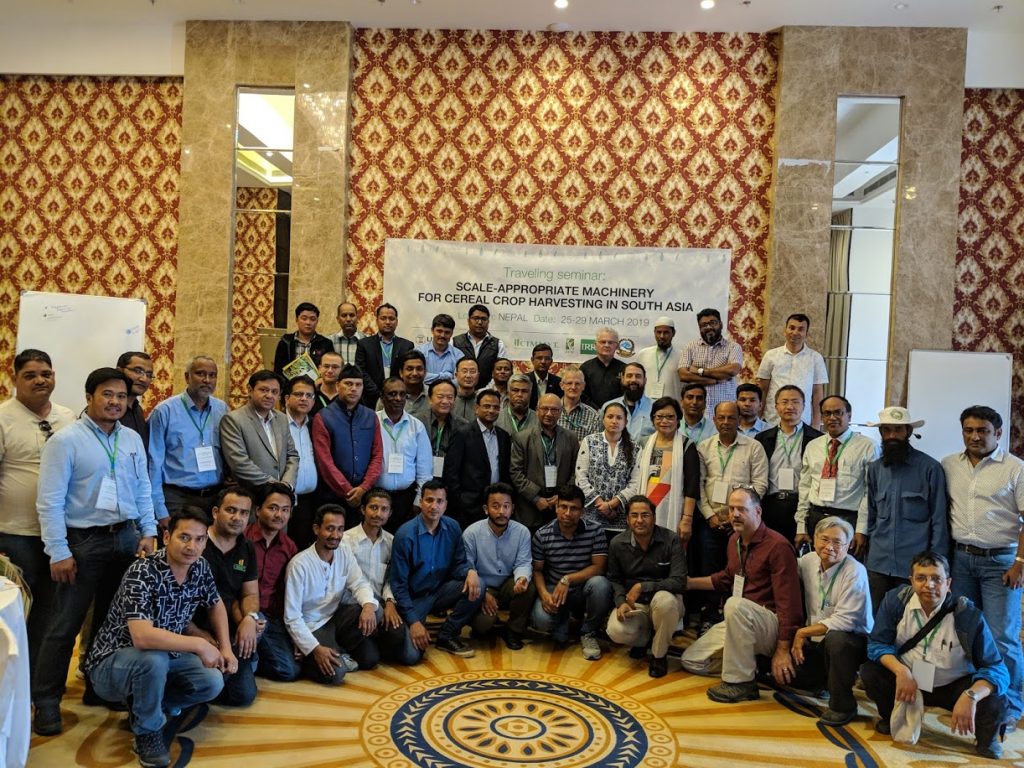Traveling Seminar on Scale-Appropriate Machinery Brings Together Delegates from across Asia

Photo: V. Dakshinamurthy/CIMMYT
CSISA in Nepal organized a three-day traveling seminar on “Scale-appropriate machinery for cereal crop harvesting in South Asia” on March 25–29, 2019. In Nepal, the adoption of agricultural mechanization has increased slowly over time. While small, regional markets for combine harvesters have existed in Nepal for the last 20 years, the major rise in sales has occurred in the last 10 years, both for combines and, more recently, for two-wheel tractor-based reaper-harvesters. Farmers have used machinery to cope with labor shortages and increasing wage rates.
Over 40 delegates, including international experts, private sector scaling partners and dignitaries such as the Director General of Nepal’s Department of Agriculture and Chief of the Prime Minister Agriculture Modernization Project attended the event. Participants visited a variety of CSISA sites and project partners across Nepal’s Terai. Field visits, demonstrations and discussions with farmers and service providers began in Rupandehi district and proceeded to Kailali district, with several in-between stops.
Delegates observed technologies being used in farmers’ fields and discussed progress-to-date to mechanize cereal production in Nepal and more broadly across Asia. Participants saw Nepal’s scale-appropriate, private sector-led mechanization in farmers’ fields, including the use of large combine harvesters and self-propelled reapers in Rupandehi and the recent spread of thousands of two-wheel tractor reapers in Banke, Bardiya and Kailali. Delegates discussed issues with farmers who use the services of machinery service providers, service providers themselves, machinery importers and sales agents.
On the last day of the traveling seminar, delegates from China, Bangladesh, India, Sri Lanka and Vietnam shared their views on how different types of farm machines are spreading in their countries. These discussions and presentations included private and public sector representatives interested in finding sustainable, equitable, and productive solutions to grain harvesting challenges for all farm sizes and farmers across the region. Professor Ding Qishuo, College of Engineering, Nanjing Agricultural University, recalled his experience in southern China 20–30 years ago and found similarities with Nepal’s Terai, where “a huge gap in rural manual labor may need to be filled by machinery”. Prof. Ding stated that there is a large opportunity for promoting mechanized harvesting in the region; however, there is still much left to do to document and quantify local farming systems. According to Prof. Ding, “many lessons can be learned from other Asian countries and applied to Nepal’s farming systems”.
